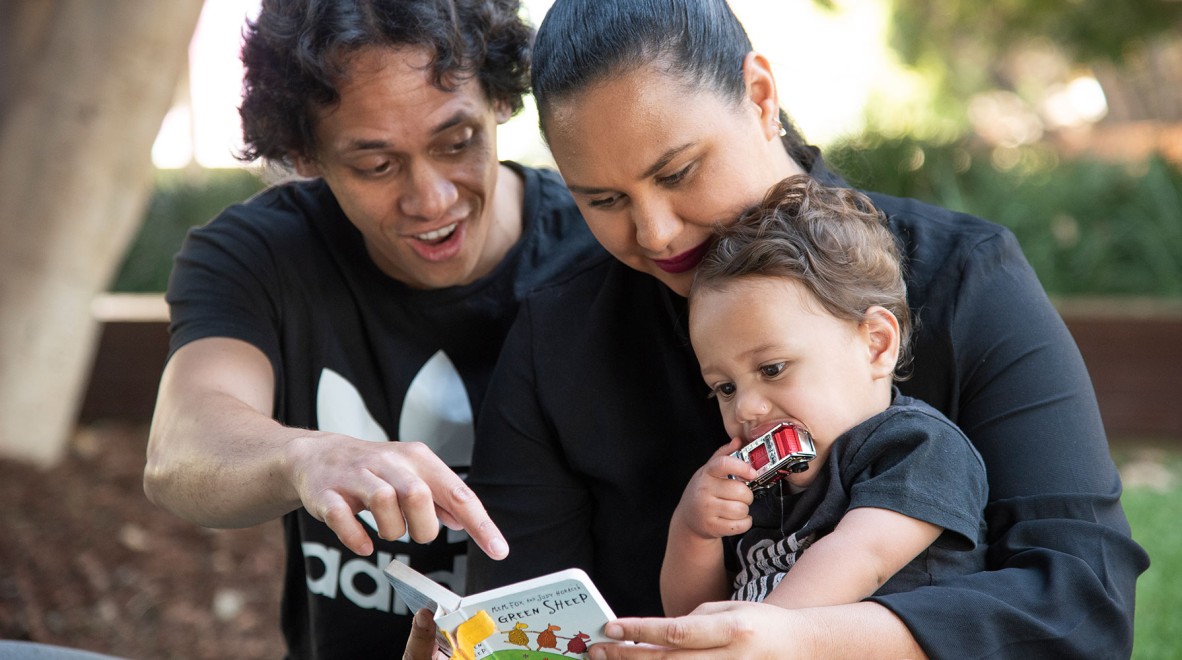
When does the magic of reading really happen?
30 October 2019 | State Library of Queensland
Have you seen the expressions on a little one’s face as they discover new things? It’s a magical experience all parents should savour. Every shared reading, talking, singing and playing interaction with your child adds up to have a big impact. These nurturing and informal learning interactions build the basis for healthy brain development from birth. When a baby mouths the corner of a board book, gazes at a book's illustrations, or feels the pages of a textured children's book, they're creating the building blocks for the next stages of learning and development.
Babies
- Everyday activities are the best way for your baby to learn. Point out and talk about what your baby can see or hear during the day.
- Share stories with your baby every day. Read slowly. It’s OK to skip pages or just talk in your own words about the pictures.
- The best toy for a baby is you. Let your baby see your face. Crouch down, lift up or sit next to your baby when talking, sharing stories and playing.
- Babies need time to express themselves. Pause to give your baby time to communicate, then respond to your baby’s sounds and actions.
- Talk to your local library staff about great books specifically for the development stage of your baby.

Every shared reading, talking, singing and playing interaction with your child adds up to have a big impact
Toddlers and Preschoolers
- Toddlers and preschoolers learn best from talking, playing, and singing with us. Best of all, this can happen any place and any time.
- Talk about what you’re doing, what you can see, and what interests your child.
- Share or tell stories that interest your child. Repeat favourites again and again.
- If you come across an unfamiliar word, don’t substitute or skip it. Instead, show your child a picture, the real object, or an action that lets the child know what the word means.
- Point out any letters or words you see. Talk about street signs, posters or labels when shopping, and show children recipes and instructions as you follow them together.
- Visit your local Iibrary and enjoy a free Story Time session.
Comments
Your email address will not be published.
We welcome relevant, respectful comments.